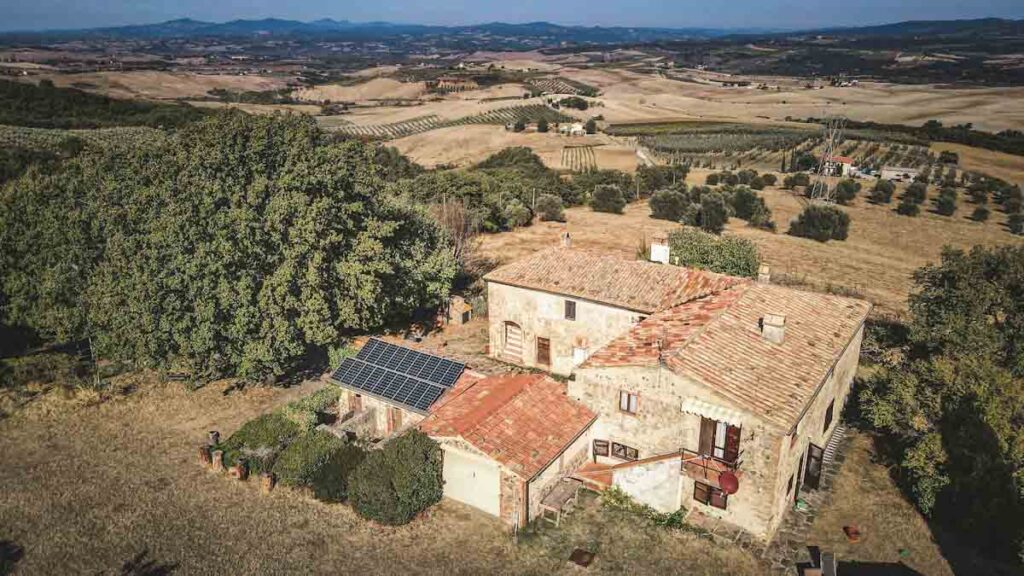
Le Marche, our beautiful region located in central Italy, offers a mix of medieval towns, quiet countryside, and a low-pressure lifestyle that attracts buyers looking for authenticity. Prices are generally lower than in Tuscany or Umbria, and properties range from rustic farmhouses to modern apartments.
However, before you go ahead with an offer, you should understand what the purchase process entails, and what living in this region truly means.
Table of Contents
- Is Le Marche the right place for you?
- Step 1 – Define Your Goals and Budget
- Step 2 – Engage a Local Real Estate Agent
- Step 3 – Research Locations Carefully
- Step 4 – Legal Checks and the Preliminary Offer
- Step 5 – The Role of the Notary
- Step 6 – Financing Your Purchase
- Step 7 – Closing and Registration
- Step 8 – Post-Purchase Considerations
- Conclusion
- Related Articles
Is Le Marche the right place for you?
Le Marche offers a variety of options for people looking to move here and enjoy the Italian lifestyle away from the bigger cities. Beaches, historic villages, countryside, hills and mountains. However, you should be aware of the big differences that exist between life here compared to other regions.
Even within Le Marche, many different exist between North and South, costal and inland towns. Before you plan your move or decide to go ahed with a purchase, it’s recommended that you had already visited the region and spent some time with locals to get a feel for the culture.
Step 1 – Define Your Goals and Budget
Before searching, decide if you want a holiday home, a rental investment, or a permanent move. A holiday home or an investment may allow for more flexibility. If you are planning a permanent move to Italy, make sure to do your homework. Consider location, amenities, connection to main cities, healthcare availability, and so on.
When you define your budget, consider property costs and future expenses.
Step 2 – Engage a Local Real Estate Agent
Working with a licensed real estate agent familiar with Le Marche ensures you access both listed and unlisted properties. They can guide you through regional nuances like property condition, permits, and local pricing trends.
Step 3 – Research Locations Carefully

Each province has unique appeal:
• Ancona & Pesaro: Coastal living and city amenities.
• Fermo & Macerata: Gorgeous historic towns, countryside charm, slower pace.
• Urbino & Ascoli Piceno: Rich in history and culture.
👉 See our guide on Where to buy in Le Marche for more detailed information.
Step 4 – Legal Checks and the Preliminary Offer
After selecting a property, your agent will help you submit a proposta d’acquisto (purchase offer). At this stage, a notary or lawyer should check property titles and boundaries.
Step 5 – The Role of the Notary
In Italy, a notary (notaio) is mandatory. They draft the atto di vendita (final deed) and ensure that all legal obligations, including taxes and registration, are met.
👉 See: What is a Notaio in Italy?
Step 6 – Financing Your Purchase
Mortgages are available in Italy but often require a local bank account and documentation proving income and residency. Cash buyers have a simpler process.
👉 Check out our guide on mortgages, loans, and funding for buyers for a deeper dive.
Step 7 – Closing and Registration

Once contracts are signed and payments made, the notary registers the property with the Conservatoria dei Registri Immobiliari (Understand what it is here).
Only after registration does the purchase become official.
Step 8 – Post-Purchase Considerations
• Utilities and local taxes (IMU, waste collection).
• Renovation permits if updating older homes.
• Hiring local craftsmen and contractors for ongoing maintenance.
Conclusion
Buying property in Le Marche is a rewarding venture if approached methodically. Understanding each step, from budgeting to legal checks, ensures a smooth process and protects your investment.
Related Articles
• Italian Property Offices Explained (Catasto & Conservatoria)
• Why Italy’s Small Towns Matter
